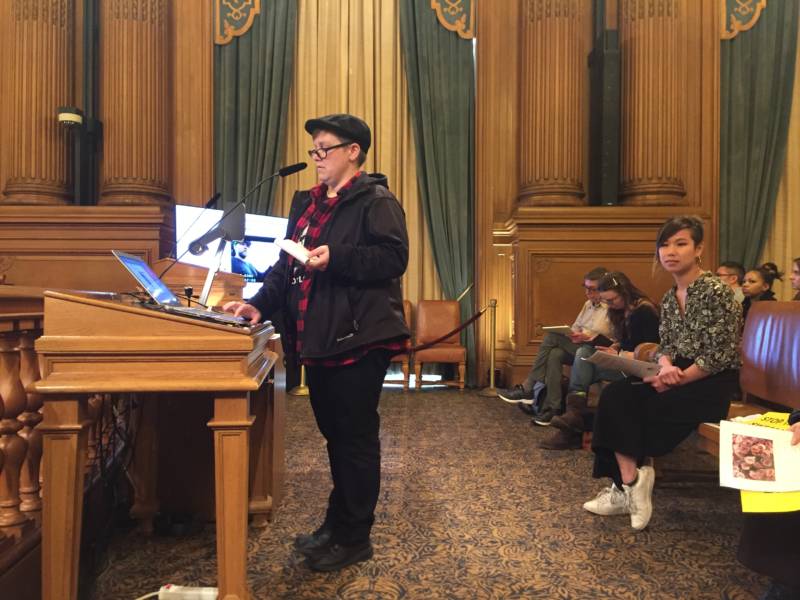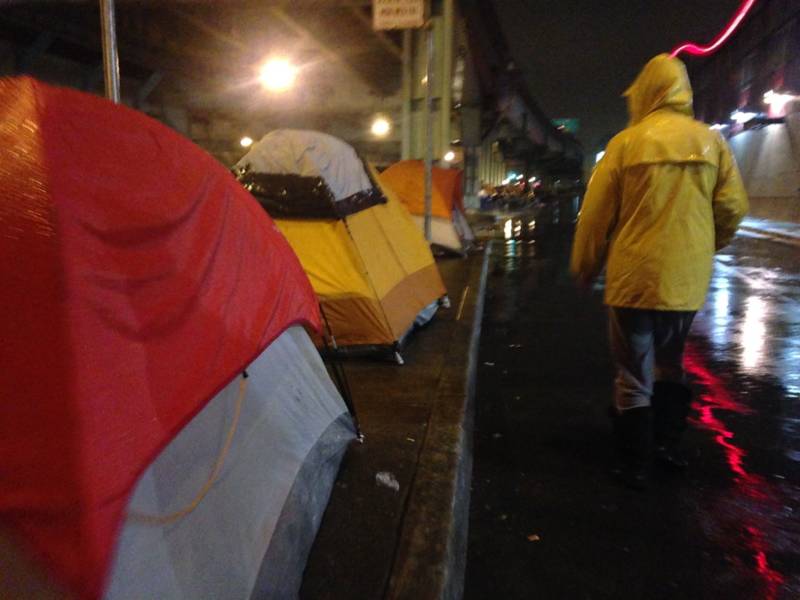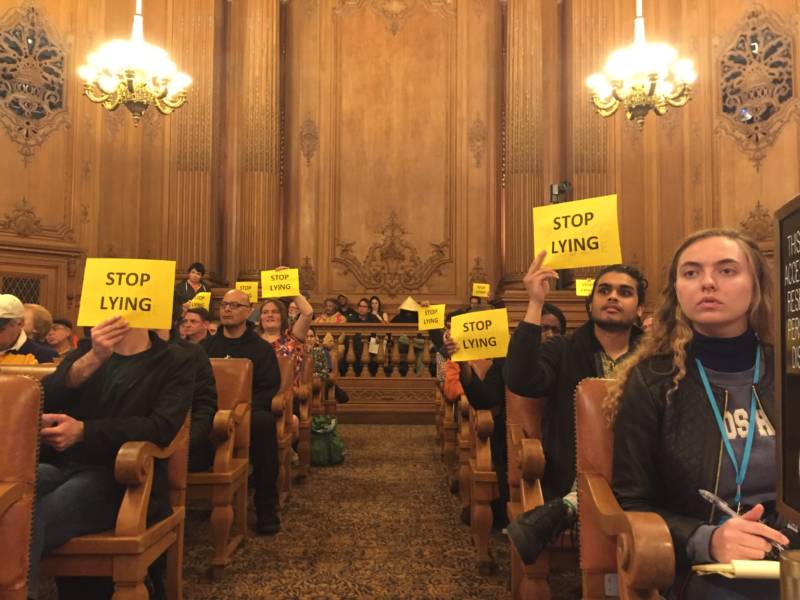Amid criticism from advocates for the homeless that San Francisco hasn’t done enough to help people living on the streets during this winter’s storms, the city has said it will change its extreme weather policy to open up more shelter space and make more services available.
The city’s current cold and wet weather policy for the homeless is activated when a combination of extreme wind, rain and temperature thresholds are reached. In such cases, the city opens up an additional 75 shelter beds.
Only two days since Jan. 1 met the thresholds to officially trigger the weather protocol, said Scott Walton, of the city’s Department of Homelessness and Supportive Housing (HSH), during a hearing on the issue Thursday at City Hall. But in February alone, it rained 17 out of 28 days.
“Even though we haven’t met the cold snap protocol, it’s been cold, it’s been wet. And just walking down the street, you can see folks that are alone in a doorway,” said Kelley Cutler of the Coalition on Homelessness. “And when you get cold and wet, with nowhere to get out of that, you stay cold and wet, and it has a huge impact on people and their health.”

The city has a homeless population of about 7,000 people and 2,500 shelter beds.


